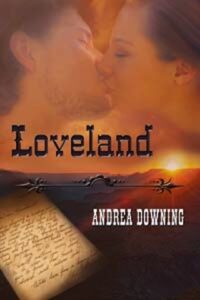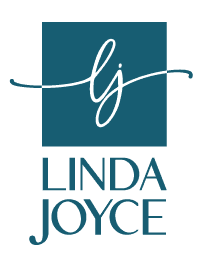 Please meet author Andrea Downing, a fellow Wild Rose Press author. She’s sharing some very interesting tidbits about the background history of her book, LOVELAND
Please meet author Andrea Downing, a fellow Wild Rose Press author. She’s sharing some very interesting tidbits about the background history of her book, LOVELAND
Genre: western historical romance
Blurb: When Lady Alexandra Calthorpe returns to the Loveland, Colorado, ranch owned by her father, the Duke, she has little idea of how the experience will alter her future. Headstrong and willful, Alex tries to overcome a disastrous marriage in England and be free of the strictures of Victorian society –and become independent of men. That is, until Jesse Makepeace saunters back into her life…
Hot-tempered and hot-blooded cowpuncher Jesse Makepeace can’t seem to accept that the child he once knew is now the ravishing yet determined woman before him. Fighting rustlers proves a whole lot easier than fighting Alex when he’s got to keep more than his temper under control.
Arguments abound as Alex pursues her career as an artist and Jesse faces the prejudice of the English social order. The question is, will Loveland live up to its name?
Andrea: The so-called ‘remittance man’—a man sent from Britain with a family allowance, or remittance, to seek his fortune in the 1880s wilds of the American West—seems to have been inspiring writers ever since the west became the favored destination for pioneer adventurers and scoundrels alike. From Robert Service’s 1907 poem, ‘The Rhyme of the Remittance Man,’ through references in Mark Twain’s writing and a 1995 song by Jimmy Buffett, the lives of remittance men have captured the American imagination in ways that were more often pejorative than complimentary, and frequently inventive rather than truthful.
To Americans, born of a democratic nature that esteemed free enterprise, the concept of a grown man being even partially supported by a father or brother could only reflect harshly on the man’s character. Surely he must be a black sheep, sent to the United States due to a scandal or some embarrassing behavior such as gambling debts back home. Yet the truth was that having some allowance, from a father or older titled brother, was the norm for most of these men, who still sought to make their own money.
American fathers of wealth viewed their offspring equally and generally divided their estate between them, assuming that each individual would then go forth and hopefully multiply that wealth. However, with the British, primogeniture ruled the aristocracy. Money was entailed on the estate, which in turn belonged to the title and he who inherited it: the oldest living male relative in direct descent. The feeling was that to divide the money would dissipate the inheritance and leave the estate, often very grand stately homes or castles, without the funds to keep them going.
Furthermore, while work was the American ethic, it was far from the British aristocrat’s consciousness to dirty one’s hands with employment other than overseeing the estate. Even for second sons or spare heirs, the idea of doing anything relative to the merchant class was repugnant. There were three areas of profession where a gentleman might safely provide for himself while remaining in Britain: the church, the armed forces, or government. None of them provided well, and not all of them were to every man’s liking.
 In my own book, Loveland, the uncle of my heroine is a remittance man and, while he is something of a scoundrel, his reasons for being so made him fairly typical of the remittance men who came to the west. One must remember that even second sons had been brought up in the same manner as the heir apparent, in the same sumptuous homes with the same numerous servants to cater to their every need, the same plentiful food and other luxuries of the day. Then, suddenly, when they reached their majority, the second sons were cast out to make their own way in the world. Obviously, trouble brewed. Jealousies ensued. Gambling debts mounted.
In my own book, Loveland, the uncle of my heroine is a remittance man and, while he is something of a scoundrel, his reasons for being so made him fairly typical of the remittance men who came to the west. One must remember that even second sons had been brought up in the same manner as the heir apparent, in the same sumptuous homes with the same numerous servants to cater to their every need, the same plentiful food and other luxuries of the day. Then, suddenly, when they reached their majority, the second sons were cast out to make their own way in the world. Obviously, trouble brewed. Jealousies ensued. Gambling debts mounted.
The men who came west, like my character Oliver Calthorpe, often came to manage the large cattle companies being formed by contingents of aristocrats. They were granted stock in the company for their trouble, and had salaries in addition to their remittance from their father or older brother. They could live like gentlemen, but their expectations of how they would live often, unfortunately, exceeded their incomes.
Homes were built that were frequently exorbitant in cost and bore no relation to their surroundings. One such residence built on the Big Sioux River had fifteen rooms, a six-foot wide staircase, a library and central hall with huge fireplace of imported tiles. While local Americans might be living in log cabins or simple wood homes with few conveniences, windmill pumps for water or wells were dug for the British who also had attic-mounted tanks for their running water. Telephones were installed, walls were papered and carved wooden stairways were highlighted by chandeliers. One family arrived in 1880s Iowa with no less than 81 trunks! Servants were frequently imported or accompanied men with families, though more often than not the turnover was great. Once the nannies, cooks and maids became known on the local, American marriage market in areas where females were scarce, it was sooner rather than later that they were homesteading with their own families to look after.
For most remittance men, however, the idea was definitely not to stay in America. Most sought to make their money within five years or so and return home to marry and set up home on the wealth accrued in the west. Others moved on to British colonies like South Africa or India. And for yet others, like my Oliver Calthorpe, the end of their American adventure might have been more violent, more final. But for some lucky few, the vagaries of life and death might have meant that they now inherited the estate and could call some other relative a remittance man.
Here’s an excerpt from LOVELAND ~~~
The light was failing and the birds were settling with their evening calls. Somewhere in the pasture a horse nickered. She sensed Jesse was there, watching, but she never turned as he stood at the fence. She heard him climb over and ease up behind her. He took the coiled rope from her in his left hand and slid his right hand over hers on the swing end, almost forcing her backward into his arms.
She thought of paintings and statues she had seen, imagining his naked arms now, how the muscles would form them into long oblique curves, how he probably had soft downy fair hair on his forearms, how his muscle would slightly bulge as he bent his arm. His voice was soft in her ear, and she could feel his breath on her neck like a whispered secret.
“Gentle-like, right to left, right to left to widen the noose, keep your eye on the post—are you watchin’ where we’re goin’?”
He made the throw and pulled in the rope to tighten the noose. Alex stood there, his hand still entwined with hers and, for a moment, she wished they could stand like that forever. Then she took her hand away and faced him. For a second he rested his chin on the top of her head, then straightened again and went to get the noose off the post while coiling in the rope. She looked up at him in the fading light and saw nothing but kindness in his face, simplicity and gentleness that was most inviting. A smile spread across her face as he handed her the coiled rope and sauntered away, turning once to look back at her before he opened the gate. Emptiness filled her like a poisoned vapor seeking every corner of her being, and she stood with the rope in her hand listening to the ring of his spurs as his footsteps retreated.
Please take a peek behind-the-scenes into Andrea’s life:
Bio: Born in New York, Andrea Downing returned in 2008 from the UK where she lived for most of her life. Having traveled extensively throughout Europe, Africa and Latin America, she now divides her time between NYC and the east end of Long Is., punctuated by frequent journeys out west—the area of the USA she loves best. Her first book, Loveland, was a finalist for the 2012 RONE Award for Best American Historical and is soon to be re-released by Amazon Encore. Her 2013 short story, Lawless Love, was also a finalist for the RONE Award as well as the International Digital Awards. Dearest Darling, a novella, part of The Wild Rose Press Love Letters series, won ‘Favorite Hero’ along with Honorable Mentions for Favorite Heroine, Short Story and Novel in the Maple Leaf Awards. It has also won The Golden Quill Award for Best Novella. Dances of the Heart, another full length novel, came out February, 2015. You can find her at https://andreadowning.com
Ways to connect with Andrea:
Links to social media/website/etc.:
WEBSITE AND BLOG: https://andreadowning.com
Facebook: https://www.facebook.com/writerAndreaDowning
Twitter: @andidowning https://twitter.com/AndiDowning
Goodreads: https://www.goodreads.com/author/show/6446229.Andrea_Downing
Linkedin: https://www.linkedin.com/profile/view?id=124888740&trk=nav_responsive_tab_profile_pic
AMAZON AUTHOR PAGE: https://www.amazon.com/Andrea-Downing/e/B008MQ0NXS/ref=ntt_dp_epwbk_0
Buy Links for LOVELAND:
Amazon: (print) https://amzn.com/1612173233
Amazon eBook: https://amzn.com/B014RUQ746
The Wild Rose Press: https://www.wildrosepublishing.com/maincatalog_v151/index.php?main_page=product_info&cPath=191&products_id=4959
Review snippets:
“Andrea Downing has crafted a masterpiece with Loveland. Her fast-paced romantic western keep readers wondering how the story can ever be resolved…Downing is a strong writer who has written a worthy premiere novel. She handles romantic scenes with flair while showing the nitty-gritty of ranch life in the 1880s. Loveland is packed with action and emotion, leaving the reader wanting more. Loveland is one of those books I hated to have end. A hands-down five-star novel.” ~ Mary E. Trimble, Captivating Stories from the American West to West Africa
“…Great storytelling! Even though the happy ending is a given, the journey was much more satisfying because of the snappy dialogue, the pivotal plotting, and the realistic progression of Alex and Jesse’s emotional connection. I’m happy to give this book Five Stars! ~ Lynda Coker, Between the Pages
“Andrea Downing does a very good job of depicting the hard life on a ranch in the late 1800´s as well as the struggles of a high-society woman to gain independence. I like the authors descriptive style and the pace throughout the book is very high, with one dramatic event after the other unfolding…The author does a good job in adding a lot of interesting historical detail and a fun group of supporting characters to give this classic romantic story more depth. I would recommend Loveland for lovers of romance and historical fiction enthusiasts.” ~Daniella, The TBR Pile
Please celebrate this book with Andrea and pick up your copy now.
Happy Reading!
Linda Joyce

Thanks so much for having me here today Linda. Much appreciated. I always enjoy talking and writing about western history.